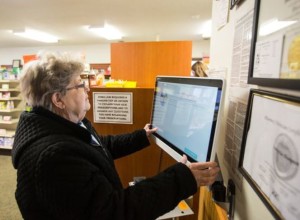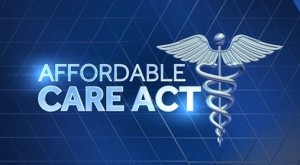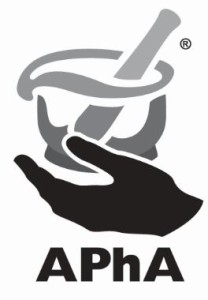- Drug Maker Reconsidering $20 Million North Carolina Factory (nytimes.com)
North Carolina's governor met...with gay-rights advocates bearing a letter signed by more than 100 corporate executives urging him to repeal the nation's first state law limiting the bathroom options for transgender people...Some companies are already reconsidering doing business in the country's ninth-largest state...Braeburn Pharmaceuticals said it is "reevaluating our options based on the recent, unjust legislation" whether to build a $20 million manufacturing and research facility in Durham County. The 50 new jobs paying an average of nearly $76,000 a year were announced two weeks ago....A silent majority of North Carolina businesses may well approve of North Carolina's new law...A company "is not going to say so publicly, since that could lead to angry demonstrators picketing or surrounding its headquarters or places of business...Corporations opposing the law may be expressing core corporate values, but they also need to be perceived favorably by customers, especially affluent gay ones, and to motivate highly educated, high-value employees who value diversity...
- Opioids: What is being done locally (kolotv.com)
America's love affair with prescription drugs began in the 90s when narcotic pain killers left the hospital and headed home in the form of a pill..."Pain killers began being prescribed at such a high rate, and the folks who were prescribing them didn't necessarily have any training," said Jennifer Delette-Snyder...of Join Together Northern Nevada..."Think of Heroin. An opioid in a pill is the synthetic form of that type of a drug,"..."A surge in painkiller prescribing has been the main driving force over this epidemic and of the heroin epidemic," said Dr. Tom Frieden, Director of the CDC...This week the agency started to combat the problem by issuing new guidelines (for) the prescriptions of opioids. The guidelines say opioids should not be the default solution for pain care..."People don't realize that these opioids are lethal. No one ever takes a pill thinking that it is going to kill them and this is the type of awareness that we are trying to build," said Teresa Benitez-Thompson, Nevada Assemblywoman from District 27...Doctors in Nevada now have to log opioid prescriptions in a database. The practice prevents patients from doctor shopping as well as prevents doctors from accidentally over prescribing...Delette-Snyder says both the CDC actions and the legislature actions have the potential to save lives, but she says we need to stay the course and only look to opioids for only the most extreme situations...Physicians could go back to prescribing only Ibuprofen, but only time will tell if they will. The CDC guidelines are only guidelines. They are not a mandate.
- High Drug Prices Prompt Demands for Transparency (realclearhealth.com)
Outraged by exorbitant prices for certain prescription drugs, lawmakers in at least 11 states have introduced legislation that would require pharmaceutical companies to justify their prices by disclosing how much they spend on research, manufacturing and marketing...The sponsors of the measures say they have a variety of goals: to educate policymakers and consumers about the reason for high prescription drug prices; to shame pharmaceutical companies into moderating their prices; and, in some states, including Massachusetts, to actually place a ceiling on prices that are determined to be unjustified...A handful of transparency bills were filed last year, but none of them passed...The industry insists that it is being unfairly targeted by the transparency measures, pointing out that prescription drugs account for only 10 percent of health care spending in the United States, $300 billion out of $3 trillion per year...Some experts in drug pricing who are sympathetic to the goals of the transparency bills are dubious that they will accomplish what their sponsors hope...
- Pharmacy Students Push for Provider Status on Capitol Hill (ashp.org)
Nearly 50 students visited 31 congressional offices on Capitol Hill earlier this month as part of ASHP’s Student Advocate Training & Legislative Day. The two-day conference, also known as SSHPTakesDC, gives student pharmacists hands-on experience in how to directly affect public policy...the students made the case for provider status legislation, the Pharmacy and Medically Underserved Areas Enhancement Act (H.R.592 and S.314), by emphasizing how the pharmacy school curriculum and postgraduate residency training prepare future practitioners to be patient care providers...“I feel like we had a good impact,” said Winston Johnson, a third-year student at Palm Beach Atlantic University in West Palm Beach...Conference attendees also met with Rep. Earl “Buddy” Carter, the only pharmacist serving in Congress. Carter praised the students for their foray into advocacy and encouraged them to stay engaged in the political process. “Politics are important to our profession,” he noted...It’s so inspiring to see these ASHP student leaders in action, and it is clear after seeing their poise, passion, and professionalism during their visit to Capitol Hill that the future of the profession of pharmacy is going to be in very good hands...
- Tele-pharmacies could spread through rural Iowa (press-citizen.com)Iowa Senate Bill 453: A bill for an act relating to the board of pharmacy... (legiscan.com)
...small towns are looking to this corner of Story County for an answer to a chronic challenge: How can rural areas provide crucial pharmacy services, especially for elderly people who have trouble traveling?...Zearing leaders say the key is tucked in the corner of a former beauty parlor that has been transformed into a small drugstore. Next to the counter, organizers set up a video screen through which customers can interact with pharmacists working in larger towns...The pharmacists explain how patients should take medications and avoid interactions with other drugs. Customers can ask questions and raise concerns. The video conversations, which usually take a minute or two, could soon become more common around the state...Iowa legislators are considering a bill that would let state pharmacy regulators routinely approve tele-pharmacies instead of handling them as limited pilot projects.
- When fools march in (washingtonexaminer.com)
National Institutes of Health officials just wisely rejected a petition, supported by 51 congressmen, to exercise "march-in" rights to discourage drug "price-gouging." The proposal didn't merely violate the explicit intent of a decades-old statute — the Bayh-Dole Act — it also revealed the legislators' ignorance of drug development and would have devastated medical innovation, while doing nothing to bring down drug costs...The act allows the federal government to "march in" and seize the intellectual property rights of the inventor and grant a license to "a responsible applicant or applicants" under two highly unlikely conditions...First, if the patentee and its licensee have not taken effective steps to achieve "practical application" of the subject invention — in other words, if they're just sitting on it — the government can license the patent to someone who will develop it...The second condition is met when government action is necessary to alleviate health or safety needs that are not being satisfied by the rights holder...march-in rights would not necessarily lower drug prices. March-in rights do not empower the government to control prices — they only allow the NIH to increase competition by giving additional companies the right to utilize drug patents that were directly derived from the government-funded research...Encouraging the government to seize patent rights in a non-emergency situation is a great way to discourage firms from developing and producing any new drugs...
- Ky. Senate Bill Aims to Stay Ahead of Biological Pharmaceuticals (wkms.org)
The Kentucky Senate...approved legislation in preparation for an expected increase in the use of biologically similar medications. The bill’s sponsor says these medicines can substantially save on costs when treating certain diseases...more medications for specific ailments are biological products made from living organisms. Bio-similar drugs, which are much cheaper, are being produced as interchangeable medicines...legislation allows pharmacists to dispense bio-similar drugs in the place of biologics without having to notify the doctor in advance...pharmacists would still be required to notify doctors of interchangeable bio-similar drugs within five days of dispensing. "If a patient has a reaction to a drug and I think I’m prescribing them drug A and you’ve given them drug B, and they may have to come to the hospital with a reaction, I’m the one treating them and assuming that liability," Alvarado (Winchester Senator, Doctor Ralph Alvarado) explained. "I have to know what drug you gave them..."
- Obamacare Was Going to Lower Health Care Costs. What Actually Happened. (dailysignal.com)
Has Obamacare Reduced Costs?...Those family cost savings, of course, have not materialized...the health care cost curve is still on an upwardly mobile trajectory...Centers for Medicare and Medicaid Services data show that total per capita health insurance spending will rise from $7,786 in 2016 to $11,681 in 2024. Looking at the future of employer-based health insurance costs, the Congressional Budget Office (CBO) projects that job-based premiums are poised to increase by almost 60 percent between now and 2025...the Affordable Care Act...calls for sustained payment cuts to the popular Medicare Advantage program. It also has scheduled some big Medicare payment reductions over the next ten years for hospitals, nursing homes, home health agencies and even hospice care programs...Medicare trustees report that, if policymakers really go through with these Affordable Care Act provisions, 50 percent of America’s hospitals, 70 percent of the nation’s nursing homes and 90 percent of the nation’s home health agencies will be operating in the red in the next 24 years...This...will jeopardize seniors’ access and quality of care.
- 3 Legislative and Regulatory Updates Pertinent to Pharmacists (pharmacytimes.com)
...at APhA’s 2016 Annual Meeting & Exposition...they discussed...the proposed nondiscrimination rule, pending pharmacist provider status legislation, and draft guidance on prescription drug abuse...
- Proposed Nondiscrimination Rule - Under this proposed rule, pharmacies would be required to offer language assistance services to patients with limited English, unless the pharmacy would face "undue financial burden," or if doing so would "result in a fundamental alternation in an entity’s health program or entity,"...also applies to the requirement that pharmacies provide auxiliary aids and services and the accessibility of programs through electronic and information technology...HHS does not expect compliance with the proposed rule to cost too much, and training employees on these new requirements is voluntary.
- Pharmacist Provider Status Legislation - legislation would allow pharmacists to be reimbursed for their services as long as the pharmacist serves in medically underserved areas, health professional shortage areas, or for medically underserved populations and follows the state’s scope of practice laws...there has been no opposition to the proposed legislation...cost will be a challenge...The next steps are getting a Congressional Budget Office score, meaning a cost estimate for the bill...they hope to see a score within a few weeks, and then a few weeks later, they can expect a House hearing.
- Draft Guidance on Prescription Drug Abuse - the Centers for Disease Control and Prevention issued draft guidance for prescribing opioids for chronic pain, which were fairly controversial...APhA’s comments on the guidelines included the fact that a team-based approach to care including pharmacists was needed. In addition, the guidelines should mention that the lowest-effective dose should be patient-specific, and more education is needed for health care professionals.
- States Remove Barriers To Physician Assistants (forbes.com)
An increasing number of states are granting physician assistants more autonomy to increase access to patients amid a shortage of doctors and an influx of patients with health insurance under the Affordable Care Act...states are removing bureaucratic barriers that in the past led to redundant tasks or slowed the ability of patients to get the care they needed...for example, Gov. Chris Christie...signed into law legislation that removed the so-called "countersignature requirement," which previously required the PAs’ collaborating physician to countersign all medical orders...lawmakers passing such legislation say they are essentially granting physician assistants the ability to do what they are trained to do. Most have a two-year master’s degree, often from a program that runs about two years and includes three years of healthcare training...PAs are being granted "full prescriptive authority," which will allow them to write prescriptions for controlled substances. Legislation is wending its way through the Florida legislature that would make the state the 49th to have the ability to write such prescriptions.








